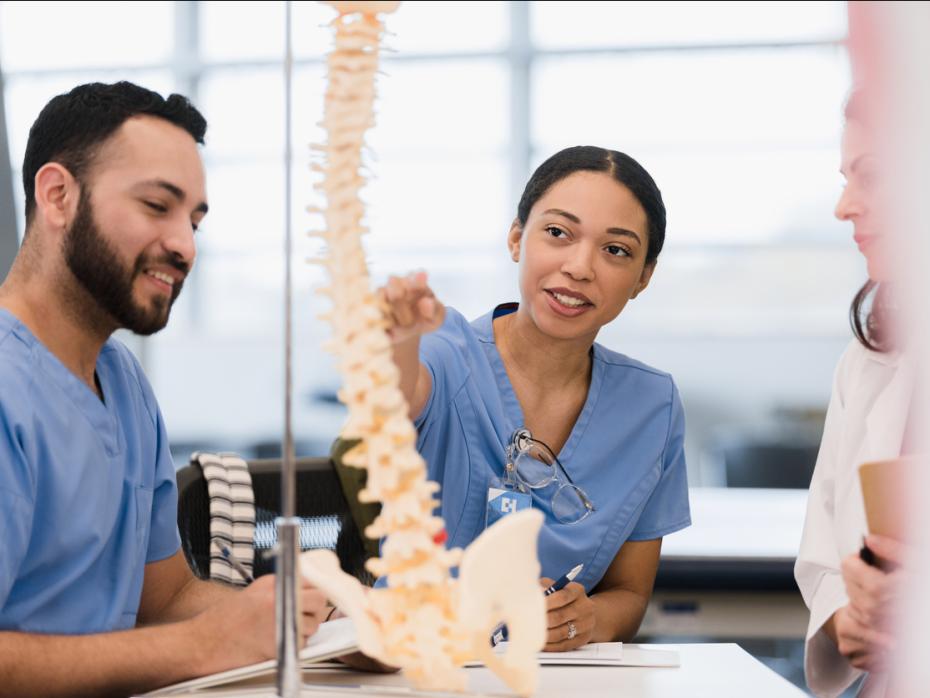
Challenging elitism in medicine
Early and ongoing support, inclusive selection processes and gateway programmes can help address the inequalities in access to medical training

You may also like
Popular resources
Less than 10 per cent of our medical workforce come from the most deprived areas in the UK. These are areas with the worst health outcomes, such as markedly lower life expectancy, and where young people can gain most from the social mobility that being a doctor can offer. A diverse workforce, one that understands the needs and challenges of our diverse population, could bring benefits to our communities, such as reducing the shocking health inequalities between the most and least deprived in our society.
Edge Hill University, along with many other medical schools, is working hard to balance this inequity in student opportunities and widen access to medicine. We, and our students, are at a relatively early stage in our journey, but we have already learned a lot. Here are our experiences to date.
Raise and support student aspirations
You are much more likely to become a doctor if a parent is a doctor or you attend a private or independent school. Those from deprived backgrounds can be put off early by their or others’ expectations that a career in medicine is “not for people like you or me”. They can find themselves bamboozled by the complexities of medical school admission and selection processes, without the benefit of support from schools or colleges with experience to guide them.
School outreach activities or campus-based activities involving medical students and doctors from similar backgrounds can help break down these barriers and demystify higher education. These should be fun but importantly provide practical advice including about finance and admissions tests and practical experience of the selection tests used in medical schools.
Working collaboratively with local medical schools can extend geographical reach, providing students with a greater range of experiences. Don’t forget that teachers need support, too, such as conferences and resources to explain the requirements and processes.
Finally, consider how early these initiatives should start, so as to limit the disadvantage of imposed expectations and wrong or limited choices at GCSE level.
Support entry routes into medicine
University selection processes must be carefully considered to ensure they do not disadvantage particular groups of students. Interviews must be inclusive, valuing a broad range of authentic experiences that develop the attributes essential for a modern healthcare professional.
Not everyone has the connections to enable them to get, for example, work experience in a hospital. Foundation and gateway programmes provide an excellent route into medicine for those from lower-achieving schools who narrowly miss grades for direct entry. These programmes need to focus as much on supporting professional development, building confidence and esteem and an understanding of the clinical environment as they do on academic achievement.
Students need ongoing support when they get to university
As they enter medical studies, students from disadvantaged backgrounds may face additional challenges, such as financial concerns, caring responsibilities or lack of confidence. Work with your students to understand these and provide practical support where possible. But don’t single out students from disadvantaged backgrounds and assume they need a particular kind of support – all students are different and a personalised approach to support is essential.
Have programmes that are authentic; students from less-advantaged backgrounds have a lot to teach other students about the needs and challenges of diverse populations.
Work closely with your placement providers to ensure they understand the challenges experienced by these students and ensure that placement opportunities, such as evening or weekend shifts, do not discriminate against those who have to work or support families.
Look to find clinicians who can champion a diverse student body and challenge medical stereotypes within the discipline, in terms of both students and medical schools. Embracing workforce diversity is key to meeting the needs of patients.
Support students themselves to challenge elitism
Ultimately, it will be the students themselves who will challenge “elitism” in medicine. We just need to provide the right environment before, during and even after medical school to allow them to do that. In many ways, we don’t want our students to change – we want to maximise the diversity – but we need to ensure the students have the confidence and resilience to celebrate difference.
Clare Austin is pro vice-chancellor and dean of the Faculty of Health, Social Care and Medicine, and Paola Dey is head of undergraduate medicine; both at Edge Hill University.
Edge Hill University has been shortlisted for Widening Participation or Outreach Initiative of the Year in the Times Higher Education Awards 2022. A full shortlist for all categories can be found here.
If you found this interesting and want advice and insight from academics and university staff delivered direct to your inbox each week, sign up for the THE Campus newsletter.



Comments (0)
or in order to add a comment